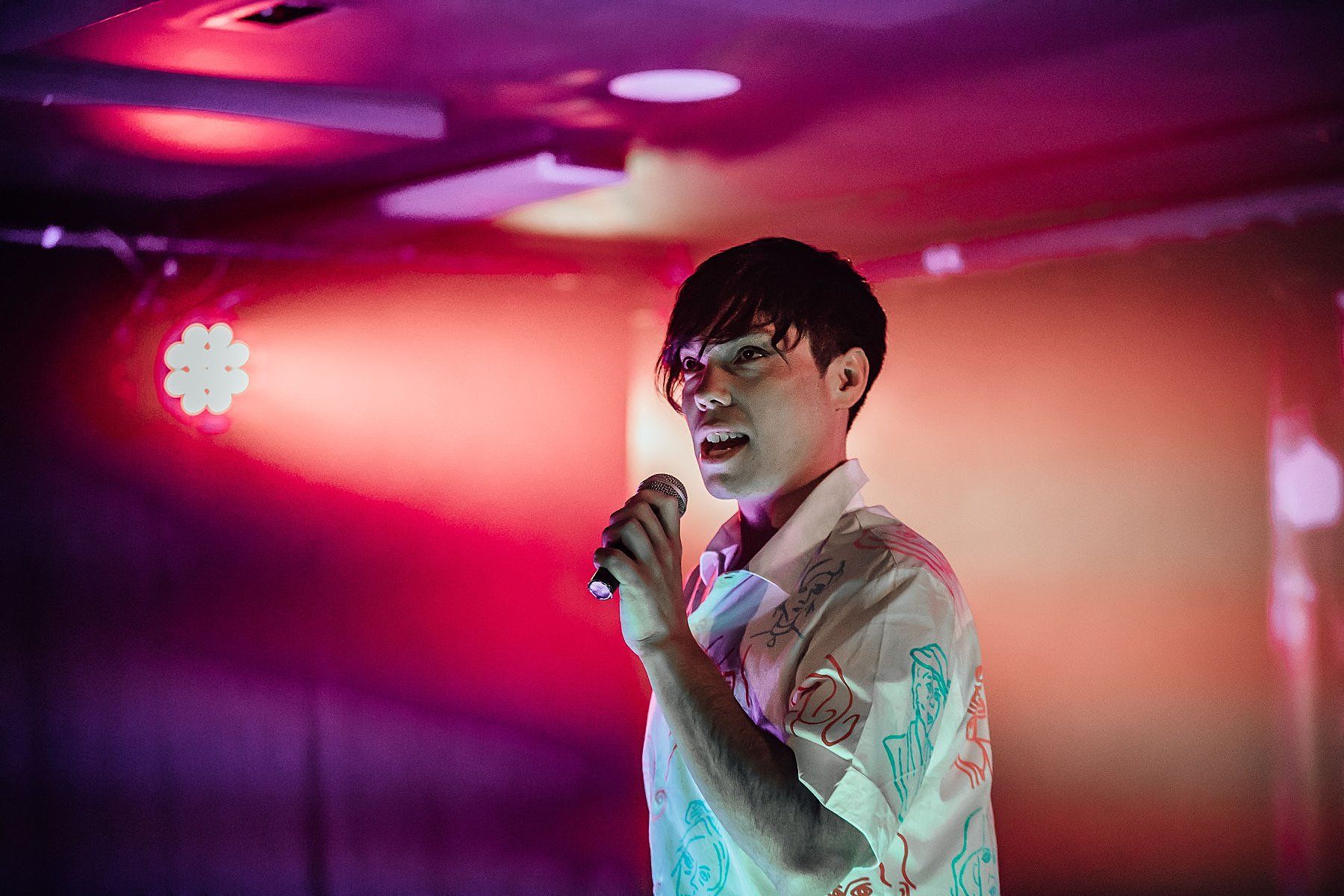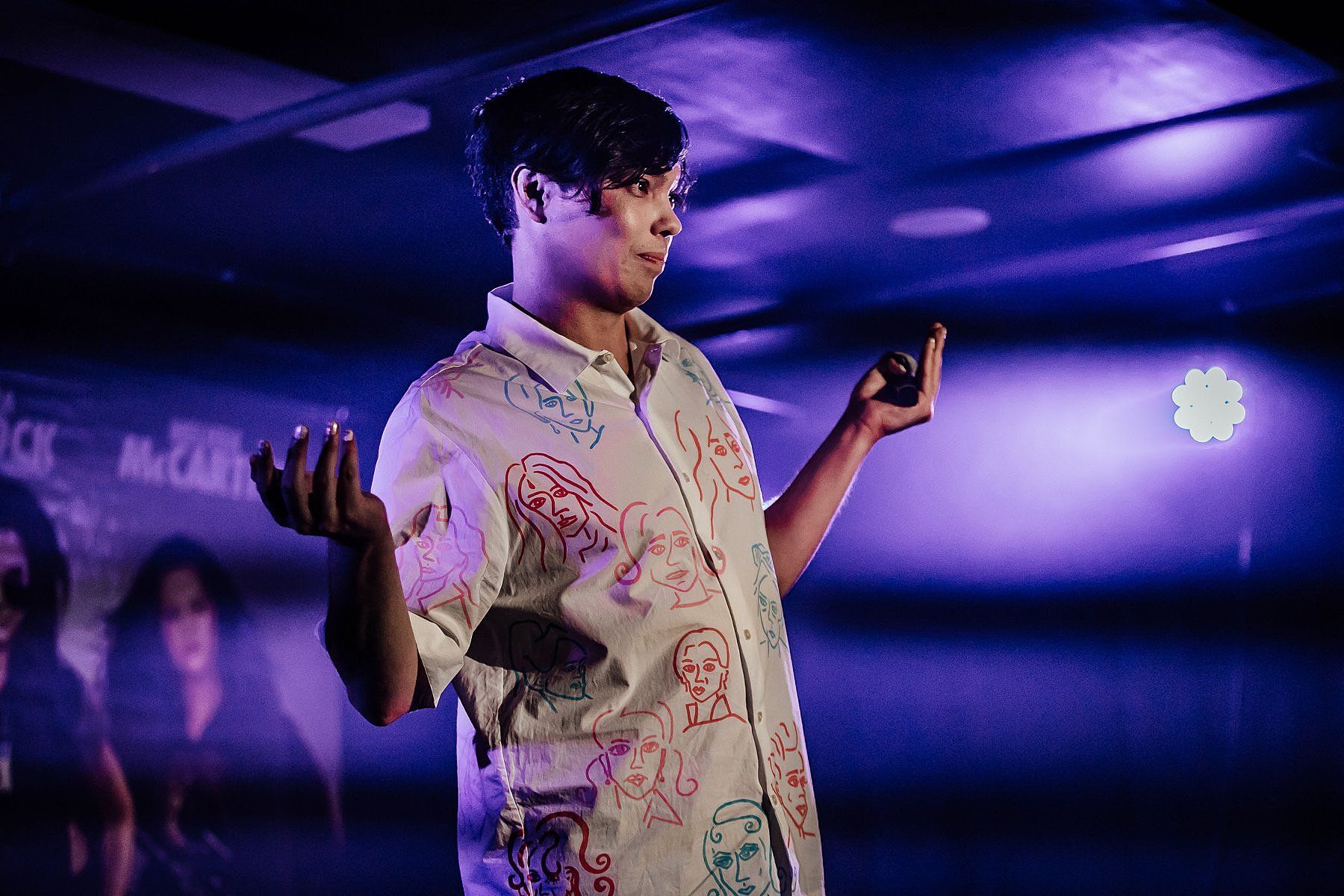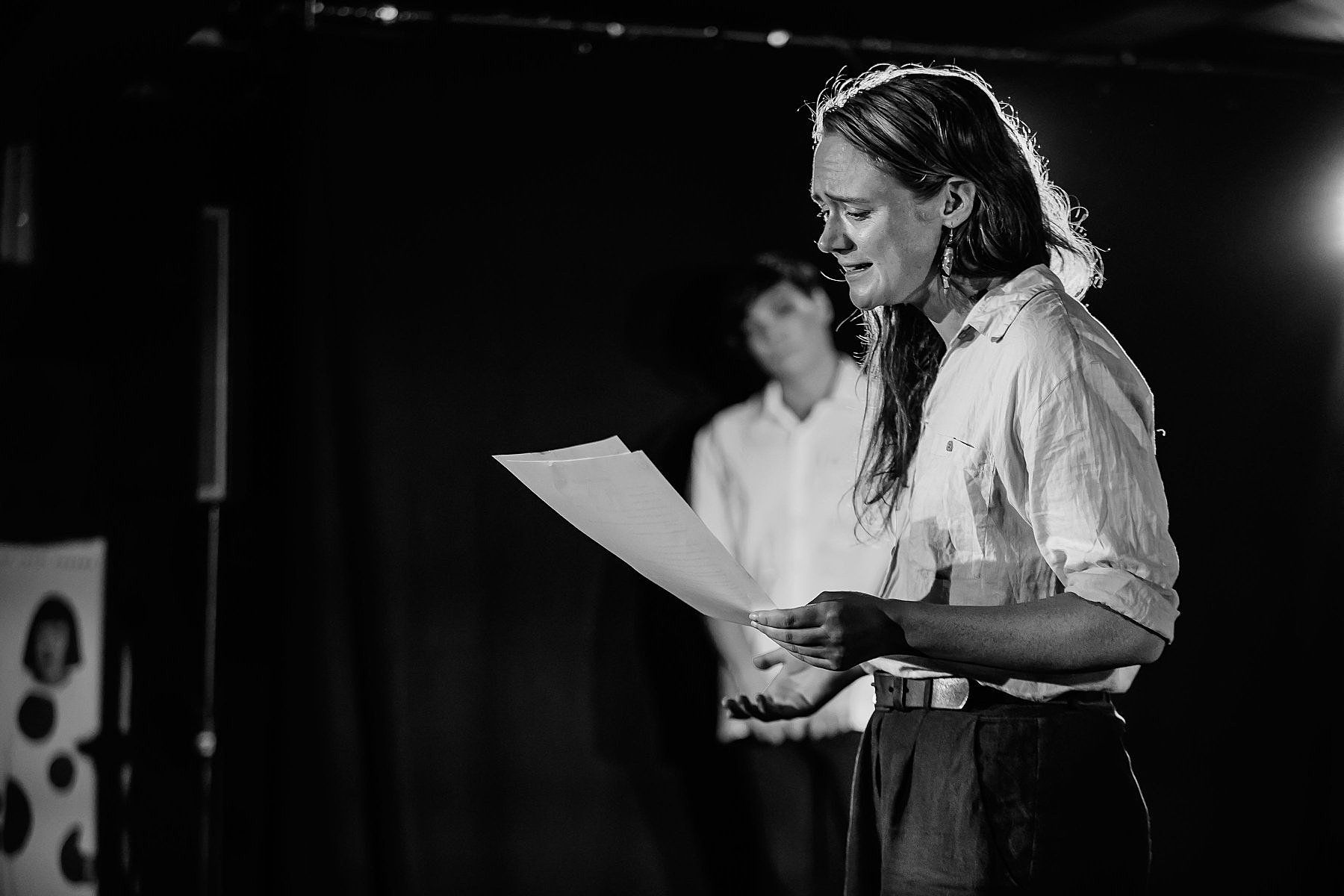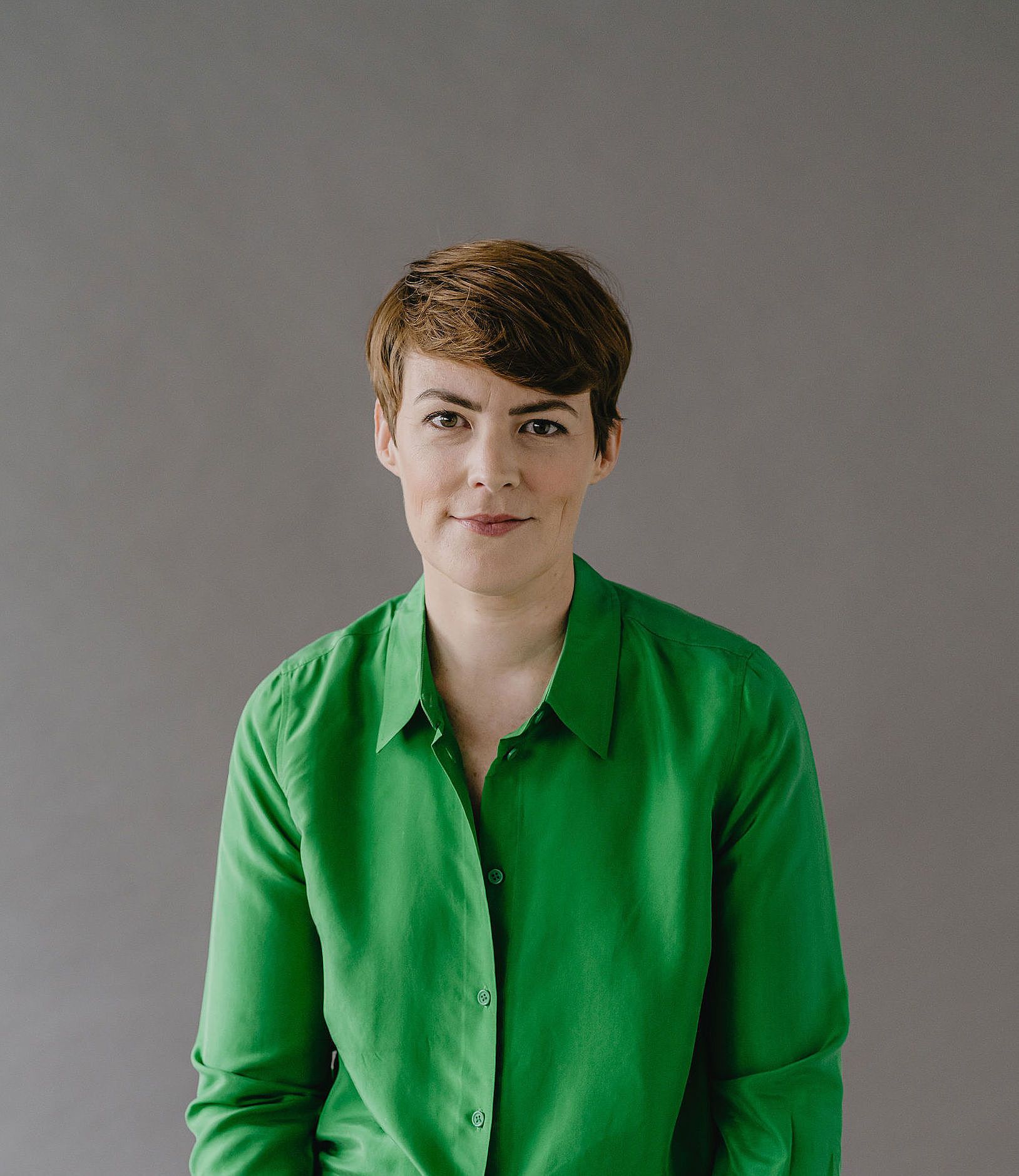Whose Voice Is It Anyway: A Review of Actressexual
Kate Prior reviews Sam Brooks' Actressexual and finds a show doing the opposite of what it thinks it's doing.
Kate Prior reviews Sam Brooks' Actressexual and finds a show doing the opposite of what it thinks it's doing.
In his Fringe show Actressexual, Sam Brooks writes, ‘allyship is nothing without self-critique and self-reflection’. Allyship, that ransacked word, is also nothing if it simply means self-congratulations, yet Brooks has made a work which culminates in exactly that.
In his show, Sam intends to make the point that ‘old-school’ male writers in New Zealand write badly for women. As the blurb states, since he’s been told he writes well for women, Sam has set himself the challenge to ‘make good on all the praise’ and write a monologue in 30 minutes for a new female actor every night. “The aim is to show up those old-school playwrights” he notes in the Herald. “If they can't write women as whole people with all their years of experience and funding, how come I can do it in half an hour?” While any context in the show’s blurb is naturally absent (he writes well for women, and so do other women; he writes well for women, in an industry that privileges those who can afford to write for little or no money; he writes well for women but what does that actually mean) I appreciate a public provocation in Auckland theatre’s current critical desert and I have a particular interest in women’s representation in New Zealand theatre, so I’m all ears.
Sam begins the show by dancing and lip syncing to a pop track, after which the actor for the night is revealed. (The night I was there this was Emily Campbell). A brief interview with her takes place and some of the answers are used to inform the character monologue Sam writes live on stage for Emily to perform later. Before she gets to that, Sam instructs Emily to read a critical essay he’s written which mainly focuses, with anger, on the lazy writing of certain New Zealand male playwrights and how this does a disservice to women actors.
In general the content of the criticism is not inaccurate – of course there are and have historically been plenty of women characters in New Zealand playwriting which are subservient, sexualised and stereotypical. But I’m unconvinced by the framework for the argument. Situating a critique about representation on the work of a handful of male playwrights (all coyly cited as ‘redacted’) diverts our attention from the more important issues when it comes to equality on our mainstages: gatekeeping and artistic control. Inconveniently, I’ve also heard of some old white men who don’t do a bad line in three-dimensional women nowadays either – Gary Henderson, Ken Duncum or Dean Parker to name a few. (Why am I even making this defence? Because this is what happens when a false argument is lobbed up – it encourages rebuttals on irrelevant points).
In a piece critiquing the way men wield lazy control and hold space, the writer is wielding lazy control and holding space
My attention is taken more with how this information is conveyed. Emily reads out loud Sam’s critical essay which forms the bulk of the work, so for a large part of her time onstage, Sam’s opinions are coming out of Emily’s mouth. There’s an uncomfortable awkwardness in the fact she’s simply a mouthpiece for his perspectives, and it feels in direct opposition to what he’s trying to convey about an actor’s unique ‘humanity’. I’d really like to hear what Emily thinks. It’s one of several facets of the dramaturgical mechanics which, for all of Brooks’ confidence with his feminist message surrounding the work, feel sadly unconsidered.
Emily’s voice isn’t hers, and it’s clear the stage isn’t hers, either: Sam performs two different choreographed dances (the dramaturgical reasons for which, in the context of this show, I genuinely can’t get my head around); he remains close by typing on his laptop as Emily reads; he interjects and performs embarrassment when some of his old scriptwriting is read out; and again he stands next to her as she reads the final monologue he’s written. This is not a casual lecture, it’s a performance work. Each of these actions creates a space where Sam’s onstage persona as the Writer and Critic is centred and supersedes any focus or agency the actor has. In a piece critiquing the way men wield lazy control and hold space, the writer is wielding lazy control and holding space.
It strikes me how much of Actressexual is borrowed from a very Hollywood ideal of The Actress. Surrounding the stage in Q Vault are film posters of Sandra Bullock and Marion Cotillard. The title Actressexual is a word coined in an internet corner of the gay cultural phenomenon of diva worship. Film blogger, Nathaniel Rogers, used it to describe his infatuation with the Oscar-winning Hollywood Actress ‘swathed in Valentino, Saab, Armani’ which, as he describes, is ‘its own sexual orientation’. As a frame for a show with a feminist message, it’s a word that uneasily sits closer to fetishism than feminism.
The only woman playwright that Sam (via Emily) mentions in his essay is Jo Randerson. The interesting effect of hearing one name is that I'm keenly aware of all the women playwrights we're not hearing about. At the end of his critique, Sam (via Emily) closes with a message for all the New Zealand authors of inconsequential female characters to ‘do better’. Then with a lightning strike of blinding self-importance, he concludes ‘I did. I wrote Burn Her’. The audience of theatre kids whoops. And Emily diligently reads a speech from Sam’s 2018 play Burn Her in a climactic crescendo where the writer is at the self-congratulatory centre of his own argument.
It’s why a bit of a gimmick disguised as criticism or allyship can get an audience of white women hollering
Walking out of the theatre I wasn’t thinking about allyship and what it means, I was thinking about the internet. I was thinking about how the way we start conversations, the way we talk about ourselves and the way we interpret information is forever shaped by the internet’s hot-take hunger, short attention span and remoteness. It’s why a bit of a gimmick disguised as criticism or allyship can get an audience of white women hollering.
Sam notes that the show is shifting and being reworked, and of course, experimentation is what Fringe is for. Yet when some fundamental frameworks and performance dynamics are skewed, I’m not sure some internal tweaks can shift its sandy foundations.
Arguably there’s no need to unpack a directorless Fringe show at Q Vault which is making some questionable choices. But Sam’s platform as Culture Editor at The Spinoff is undeniably part of his Critic/Playwright persona in this show. His no-holds-barred comments in publicity, helped by media platforms gutted of arts journalists yet fuelled by clickbait have lifted his criticism beyond the Fringe and into national awareness, generating bonkers headlines in weekend papers like ‘Why Kiwi theatre is so bad’. “I have enough of a platform now that I feel really comfortable that people trust the things I say” Sam says. So what he has to say and create, in the theatre and beyond, demands a level of critique. Indeed, with such blunt public provocations, it’s being invited.
In that same Stuff article Sam also says, “I’ve worked very hard on my craft and my career and it feels safe enough that I can throw the first stone”.
In 1984, Philippa Campbell and Fiona Samuel, on behalf of the Wellington Actors Equity Caucus, made a submission to a Royal Commission on broadcasting about the inequitable representation of women in drama. It’s believed to be what helped bring revolutionary 1987 female-driven television series Marching Girls into existence. In 1985, Helen White wrote an essay titled Paths for a flightless bird: Roles for women on the New Zealand stage since 1950. It documented the lack of women’s roles throughout the 1960s and ‘70s but recorded the key female-driven texts which created a foundation for future development. On colonial patriarchy in film throughout the 1960s-90s, Merata Mita wrote, “In much the same way that Māori films are driven by identity, resolution and survival, films by white New Zealanders never question their survival on a political level, only a personal one” and stated that what our films from this time have in common “is an extraordinarily shallow raison d’être”. In her seminal 1995 play Ophelia Thinks Harder, Jean Betts criticised female representation in theatre, using Hamlet to do it. More recently the Women’s Theatre Festival in Wellington has been platforming the work of women playwrights and discussing ongoing issues of representation. Women have been throwing stones for decades.
It’s rare that any of us are the first. If you want to support women, making a show that’s driven by ego or bending a principle to your own ends may not be the most useful avenue, especially when behind you is everyone else’s slog. It’s great to celebrate women’s work, it's fine to be proud of your own, and seeing women who reflect us on stage and screen is what we all need. But allyship fails when it’s about validation. True solidarity is about knowing your history, being considered in your actions, and getting out of the way.
Actressexual runs from February 19 to March 2 at Q Theatre. Tickets available here.




